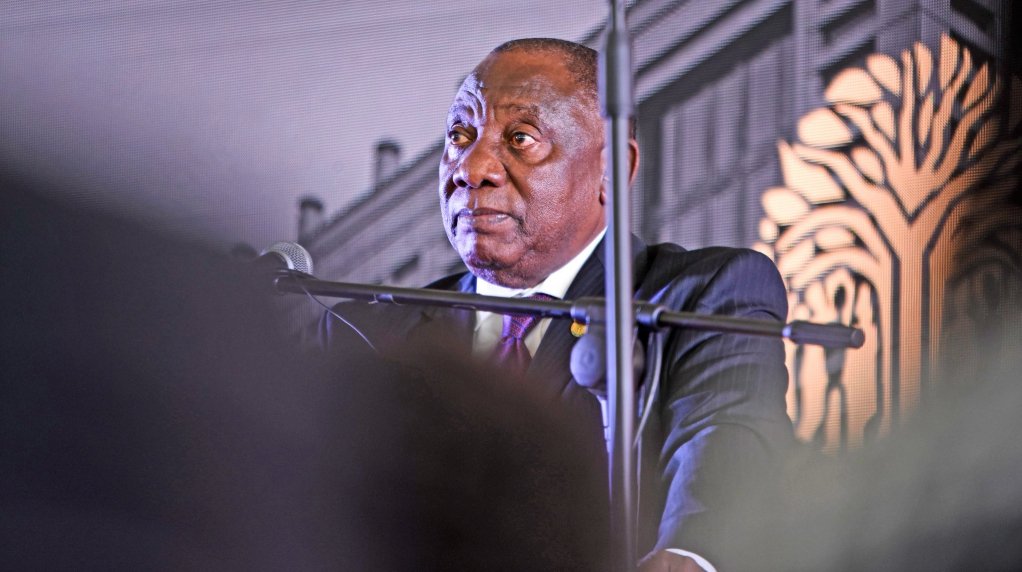The content on this page is not written by Polity.org.za, but is supplied by third parties. This content does not constitute news reporting by Polity.org.za.
Dear Fellow South African,
Last week, the world came together at the 4th Financing for Development Conference in Sevilla, Spain, to agree on a set of actions to advance development over the next decade.
This year’s conference took place at a moment of great consequence for humanity. We face more daunting challenges than at any other time, from the growing devastation caused by climate change to persistent levels of poverty in many parts of the world.
To confront these challenges, we need to mobilise funding to tackle climate change, reduce poverty and build infrastructure that enables sustainable and inclusive economic growth.
It is estimated that the world needs an extra $4 trillion dollars a year to meet the UN Sustainable Development Goals by 2030, a gap which can only be closed through more affordable, long-term sustainable financing.
A major contributor to this financing gap is the growing debt burden faced by many developing economies, particularly those in Africa. Around 3.4 billion people now live in countries that are spending more on interest payments to creditors than on health and education.
As the Jubilee Commission appointed by the late Pope Francis notes, while few countries have defaulted on their debt, “they are defaulting on their people, their environment and their future”.
Debt can be a tool for development, if it is affordable and spent efficiently on infrastructure and other investments that support growth. However, a succession of external shocks – including the COVID-19 pandemic, the destabilising effect of various conflicts around the world and tightening financing conditions – has caused the cost of debt to rise rapidly for many developing economies.
At the inception of our G20 Presidency, we appointed an Africa Expert Panel led by Trevor Manuel, our former Minister of Finance, to develop recommendations that the G20 can take forward. We did so because we are convinced that Africa’s development must remain front and centre this year and into the future.
We have since been focusing on practical solutions to achieve debt sustainability, such as improving the G20 Common Framework for debt treatments to enable timely and adequate debt restructuring.
We are also working to expand the use of innovative mechanisms to alleviate the debt burden in times of crisis, such as climate resilient debt clauses, which automatically pause debt payments when a country faces a climate disaster.
Going forward, a key priority is to ensure that more support is available to countries facing financial liquidity challenges, with interventions taking place early enough and providing enough relief to avoid a crisis.
We have shown that this is possible through previous efforts spearheaded by the G20, such as the Debt Service Suspension Initiative, which created fiscal space for low-income countries during the COVID-19 pandemic.
There is no shortage of solutions to address the debt burden. What we need is the political will to translate proposals into action and to do so at a scale that matches the size of the challenge.
Countries committed in Sevilla to “take concrete actions to enhance fiscal space, address debt challenges of developing countries and lower the cost of capital”.
This commitment was reinforced by the Rio de Janeiro Declaration adopted at the BRICS Leaders’s Summit in recent days, which recognised the need to “address in an effective, comprehensive and systematic manner the debt vulnerabilities of both low and middle income countries.”
The world cannot stand by and watch as rising debt service costs crowd out development for a generation or more.
For this reason, South Africa is committed to working together with all countries to confront the debt challenge in a manner that is effective, sustainable and just.
With best regards,
Issued by the Presidency
EMAIL THIS ARTICLE SAVE THIS ARTICLE ARTICLE ENQUIRY
To subscribe email subscriptions@creamermedia.co.za or click here
To advertise email advertising@creamermedia.co.za or click here











